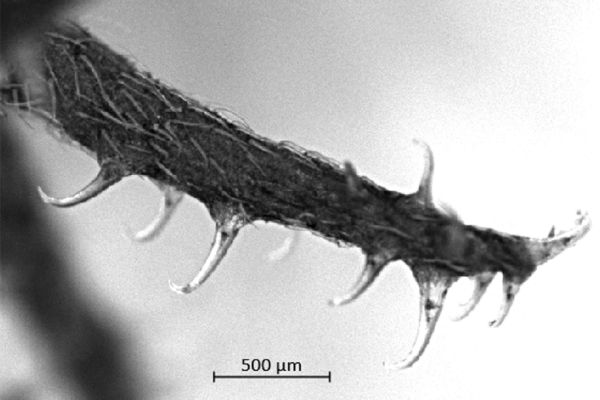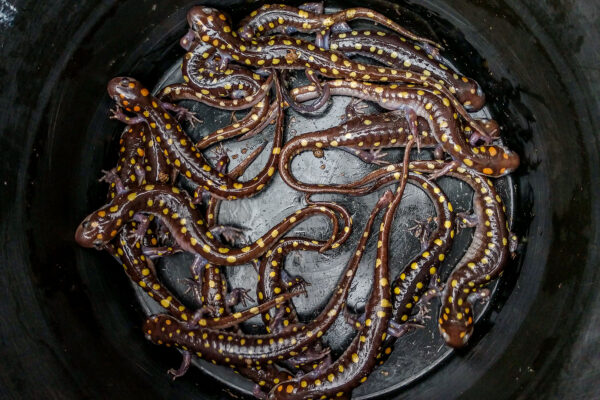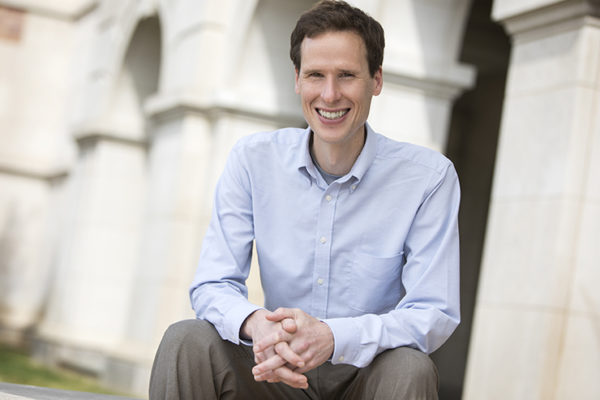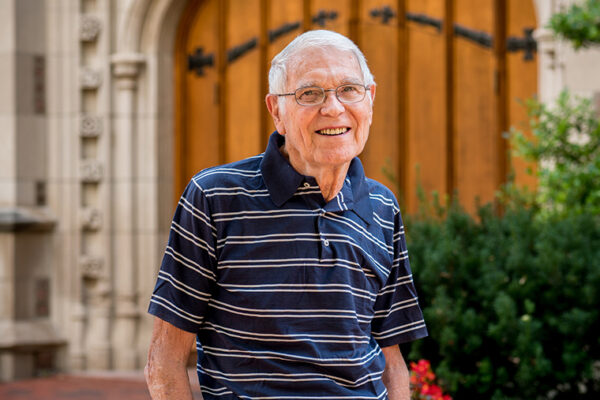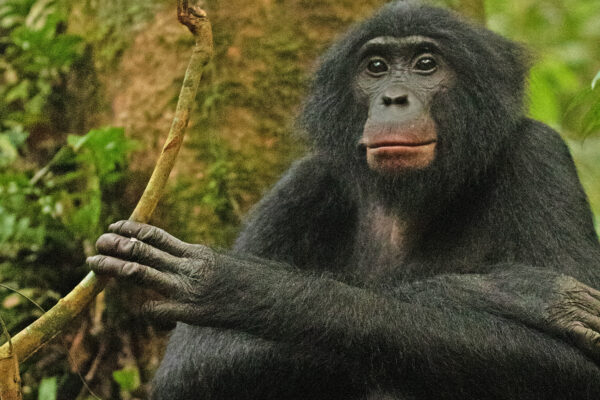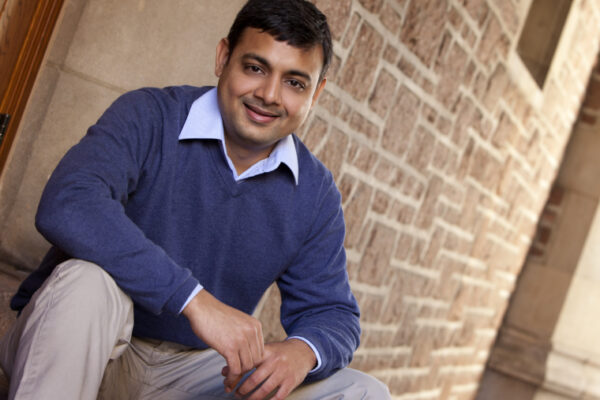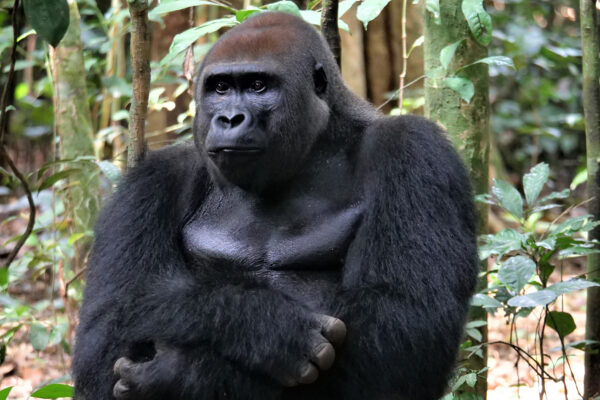Hummingbirds use torpor in varying ways to survive cold temps
Tropical hummingbirds use a hibernation-like state called torpor in varying ways, depending on their physical condition and what is happening in their environment, according to new research from Washington University in St. Louis and Colombian biologists.
Hitchhiker plants inspire improved techniques for reattaching tendon to bone
A team of researchers led by Guy Genin, at the Center for Engineering MechanoBiology and the McKelvey School of Engineering, explores new approaches to surgical tendon-to-bone repair.
Secret lives of salamanders
Scientists at Tyson Research Center are carefully tracking the timing of salamander breeding as part of a larger research effort examining the impacts of climate change on amphibians and plants.
Molecular activity of the immune system to get a closer look
Michael Vahey, an assistant professor of biomedical engineering at the McKelvey School of Engineering, received an NSF CAREER award to establish the factors that drive the assembly of viral immune complexes and to study how they interact with immune cell receptors.
Garland Allen, professor emeritus of biology, 86
Garland (“Gar”) Edward Allen III, a professor emeritus of biology in Arts & Sciences, died peacefully in Palm Springs, Calif., Feb. 10. He was widely known for his work in the history of genetics and was an international leader on the history of eugenics.
Malaria infection harms wild African apes
Scientists led by Emily Wroblewski, in Arts & Sciences, discovered that bonobo populations differ in a key immune trait depending on the presence of malaria infection. Infected populations have a higher frequency of an immune variant that protects against developing severe disease, a pattern that mirrors what is observed among human populations.
Cells take on dual identities
Cells migrate to different tissues for a variety of reasons, including organ development, tissue repair and the spread of cancer. Researchers led by Amit Pathak at the McKelvey School of Engineering have found unexpected activity in the nucleus of healthy cells that provides new insight into cell mechanics.
Study quantifies global impact of electricity in dust storms on Mars
Using a planetary simulation chamber built at Washington University, scientists led by Alian Wang in Arts & Sciences discovered that electricity in dust storms could be the major driving force of the Martian chlorine cycle.
Carbon-negative concrete products to be formed from upcycled waste
With collaborators from Missouri University of Science & Technology and GTI Energy, Xinhua Liang at the McKelvey School of Engineering plans to develop an economical process to convert carbon dioxide and solid waste into carbon-negative concrete products.
WashU great ape, biodiversity research informs decision to expand Congolese park
At least 20 Washington University students participated in a Living Earth Collaborative project and a related camera trap effort to provide evidence that the Djéké Triangle deserves legal protection.
View More Stories

